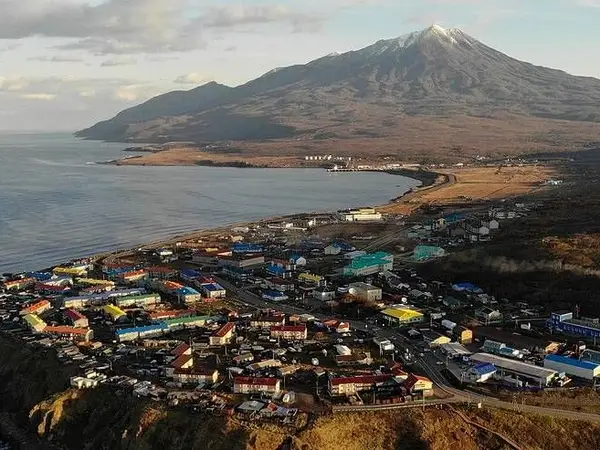Feeling betrayed by Moscow’s support for UAE’s claim on three Iranian islands, a top official in Tehran has backed Japan’s demand for talks over the Kuril Islands.
During a meeting with Japan’s ambassador to Iran Aikawa Kazutoshi, Kamal Kharrazi, the head of Iran’s Strategic Council on Foreign Relations and a foreign policy advisor to Supreme Leader Ali Khamenei, said that the best way to resolve the territorial dispute between Japan and Russia over the four islands is through “direct negotiations.”
At the end of World War II, Russia annexed the Kuril Islands in the Pacific Ocean to its territory, but Japan calls these islands the Northern Territory and considers them “occupied by Russia.”
Talking about the Russian invasion of Ukraine and the possible consequences of the crisis for Japan and its surrounding environment, the Japanese envoy said that since the war has started, Russia has halted bilateral negotiations with Japan regarding the occupation of the Kuril Islands.
Kharrazi stated that as a matter of principle, Tehran is against any military intervention and violation of the sovereignty and territorial integrity of countries, and the best solution is bilateral talks to resolve the Kuril islands dispute.
This was exactly the position Russia took last week regarding three Iranian islands in the Persian Gulf contested by the United Arab Emirates.
In a joint Russia-GCC statement at a meeting, held in Moscow on July 10, Russia voiced support for the UAE's demand to hold talks about sovereignty over Greater Tunb, Lesser Tunb, and Abu Musa Iranian islands.
The statement called for "bilateral negotiations or the International Court of Justice, in accordance with the rules of international law and the United Nations Charter, to resolve this issue in accordance with international legitimacy".
Iranian media, opposition activists and ordinary Iranians were outraged over Moscow’s move and viewed the regime’s reactions not strong enough.
Qasem Mohebbali, a former senior diplomat who headed the Middle East division of the foreign ministry, criticized the regime’s pro-Russia and anti-West foreign policy as the reason why Iran’s allies are teaming up with its regional rivals, noting that Russia and China believe that no matter what they say or do, Tehran will continue to support them over Ukraine, Tibet and Taiwan.
Mohebbali said that China and Russia care more about their relations with Arab countries than with Iran. “Apparently, Iran's friends do not pay much attention to Iran's demands and pay more attention to the rivals’ [Arab] demands,” he said.
In its Thursday edition, conservative newspaper Jomhouri Eslami wrote in a strongly worded editorial: "This is not going to be Russia's last treason against Iran." The daily added: "Foreign Ministry officials should not think that this episode will end by summoning Russia's ambassador. We need an essential revision of our political relations with Russia and forcing Russian statesmen to regret their treason against the Iranian nation."
Asked why Moscow undermined Iran's territorial integrity," international relations analyst Mehdi Motaharnia told Khabar Online that "Russia wishes to put an end to its isolation by sacrificing Iran's interests." Meanwhile, he called Iranian officials' mild reaction "a withdrawal from revolutionary positions."
The Foreign Ministry summoned Russia's ambassador and Foreign Minister Hossein Amir-Abdolahian and government spokesman Ali Bahadori wrote in separate tweets that "Iran will not compromise over its national interests and territorial integrity." However, Tehran’s official reaction to Russia has been meek. Social media users said officials had indeed made a compromise by not naming Russia in their tweets.
Vowing “a strong response” to such moves, foreign ministry spokesman Naser Kanaani said that Iran “views the interference of any party, including the UAE and Russia, as unacceptable and rejects it.
The United Arab Emirates has repeatedly laid claim to the islands, describing the situation as “the continued occupation by the Islamic Republic of Iran.”
The three islands fell under British control in 1921 but on November 30, 1971, a day after British forces left the region and just two days before the UAE was to become an official federation, Mohammad Reza Shah sent the Iranian navy to secure all three. Iranian forces remain on the islands, with only Abu Musa having a civilian population which is less than two thousand.
